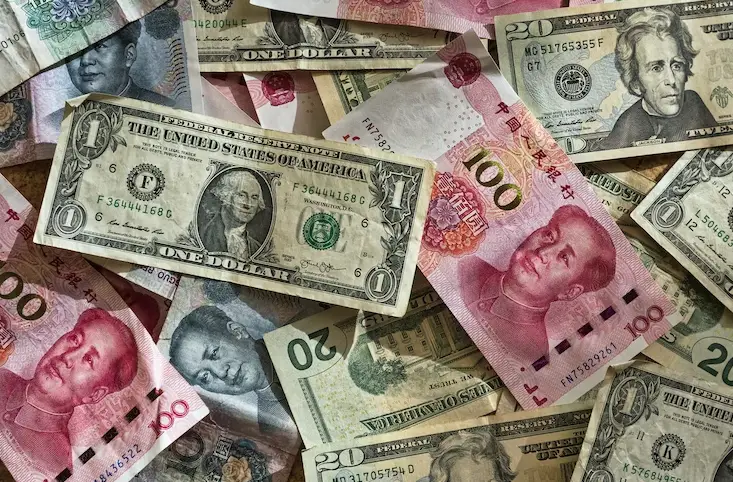On Thursday, a Reuters report revealed that according to market sources, major Chinese banks were selling large quantities of US dollars so that they could purchase yuan, in an effort to diminish the weakening of the national currency.
The report stated that the sales were noted in onshore and offshore foreign exchange markets, with the offshore units of the banks focused on selling the dollars during trading hours in London and New York.
The news outlet said it was told by a Shanghai-based trader that such actions by the Chinese banks are not uncommon. Although banks in China will mostly trade for their own reasons, or due to requests from clients, they can also trade on orders from the nation’s central bank, the People’s Bank of China (PBOC), if it requires that the national currency receive additional support.
The trader told the outlet, “State bank dollar selling has become a new normal to slow the pace of yuan depreciation.”
So far this year, the offshore yuan is down about 6% versus the dollar. On Thursday, it fell to a nine-month low of almost 7.35 to the dollar. On Friday it strengthened somewhat following a hike by the PBOC to the daily fixing, the midpoint rate around which the yuan trades in a 2% band.
By the middle of the day, the offshore yuan had strengthened to 7.28 to the dollar, while the onshore yuan had reached 7.30 to the dollar
Analysts say the weakening in the yuan’s exchange rate versus the dollar is due to the growing yield differential between China and the US, which this week widened to its highest in 16 years, after the Chinese regulator cut interest rates.
The analysts said the depreciation was also fed by investor worries over the slow pace of Chinese economic growth, growing concerns over the nation’s vital but troubled real estate market, which is responsible for almost 25 percent of the country’s GDP, as well as risks associated with defaults in the nation’s shadow banking sector.
The Swiss hedge fund EDL Capital noted that it sees further weakening in the offshore yuan this week, adding the depreciation of the Chinese currency could prove to be the next “black swan event” for the world’s markets.


